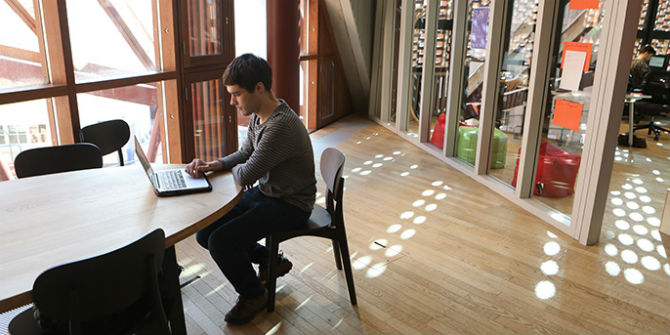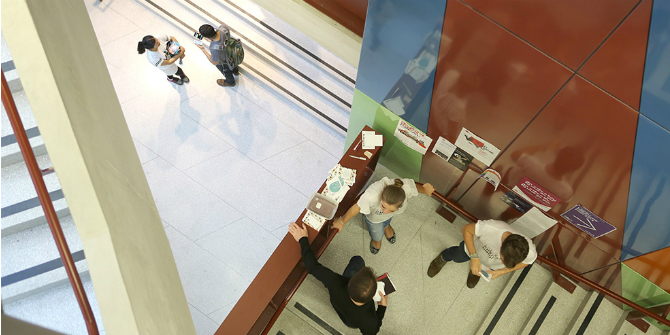Apart from attending lectures and classes, most of your time at LSE will likely be spent doing independent study, from completing readings to writing essays. As a result, with the sheer amount of work you’ll have to do across all your courses, it is crucial to find ways to be as productive as you can whilst studying on campus. Not only will this make studying a more smooth and enjoyable process (at least as much as possible!), studying more efficiently will also enable you to make more time for your social life and doing things aside from the academic aspect of university.
Here are a number of tips to help you make your study days on campus especially more productive:
Make a plan beforehand
The first thing you need to have for a productive study day is a game plan. Without one it can be difficult to know where to start. Trying to study without a clear idea of what you need to do is inefficient and stressful. Ideally, you should make a list of the tasks that you need to get done the day before you plan to do them, or at least the morning of your study day if that is not possible. By making a clear list of everything you need to accomplish by the end of the day, you are setting yourself a clear plan to follow so that you can concentrate on actually doing the work rather than on thinking about what work you need to do. Make sure you are realistic with how much you can actually achieve in a day when writing your list, and list tasks in order of descending priority or difficulty to ensure that you get more work done even if you don’t get to the end.
Get to campus early
Although it can be tempting to arrive at campus in the afternoon to study, it is much more useful to get to campus in the morning, though how early that is is up to you! Only starting to work when half the day is gone and it is starting to get dark outside is never very motivating. Conversely, starting getting your work done in the morning allows you to finish studying earlier and therefore relaxing earlier too. In addition to this, the LSE campus is usually much quieter in the morning, which is ideal for getting serious work done as well as securing a space in a particularly popular study spot.
Choose an appropriate study spot
Once you are on campus, a crucial decision you need to make is where to study. After all, a good environment can make or break a study session. Whether you choose a new place to study or an old favourite spot, make sure it is suitable for serious study. While a café or breakout space might be a relaxing environment, these areas often get very noisy and are only meant for casual studying. This does not mean you necessarily have to work in the silent zone of the library, but it is best to find a relatively quiet place to study. If you need to, bring along some noise-cancelling headphones to help you concentrate.
Make time for regular breaks
Once you get really into your work, it can be tempting to study continuously for hours on end without taking any breaks in order to avoid losing your momentum. However, doing so often does more harm than good, and regular breaks are necessary to avoid burning out and losing focus. Instead of going on social media, give yourself a break away from a screen and go for a quick walk around campus for a change of scenery. Eating properly is also extremely important both for your body and mind and it gives you the fuel to keep on studying. If you are really on a tight schedule, turn eating into a break and have a meal or quick snack to re-energise you for your next session.
Have a cut-off time
Even with frequent breaks, we can only study for so long in one day. You should never plan to coop yourself up for excessively long periods of time in the library. But even when you allocate yourself a relatively small amount to do, sometimes you still might not get everything done. Once you start to get too tired and you notice your performance is drastically dropping, stop working. Instead of forcing yourself to continue working into the late evening or night, make a new plan for the next day and repeat the process.
Happy studying!




